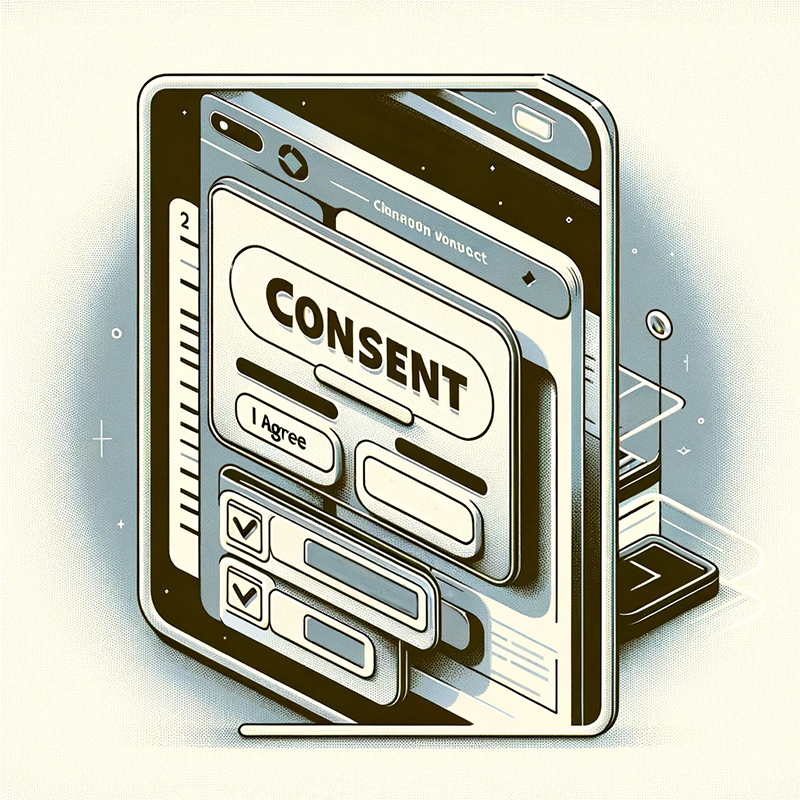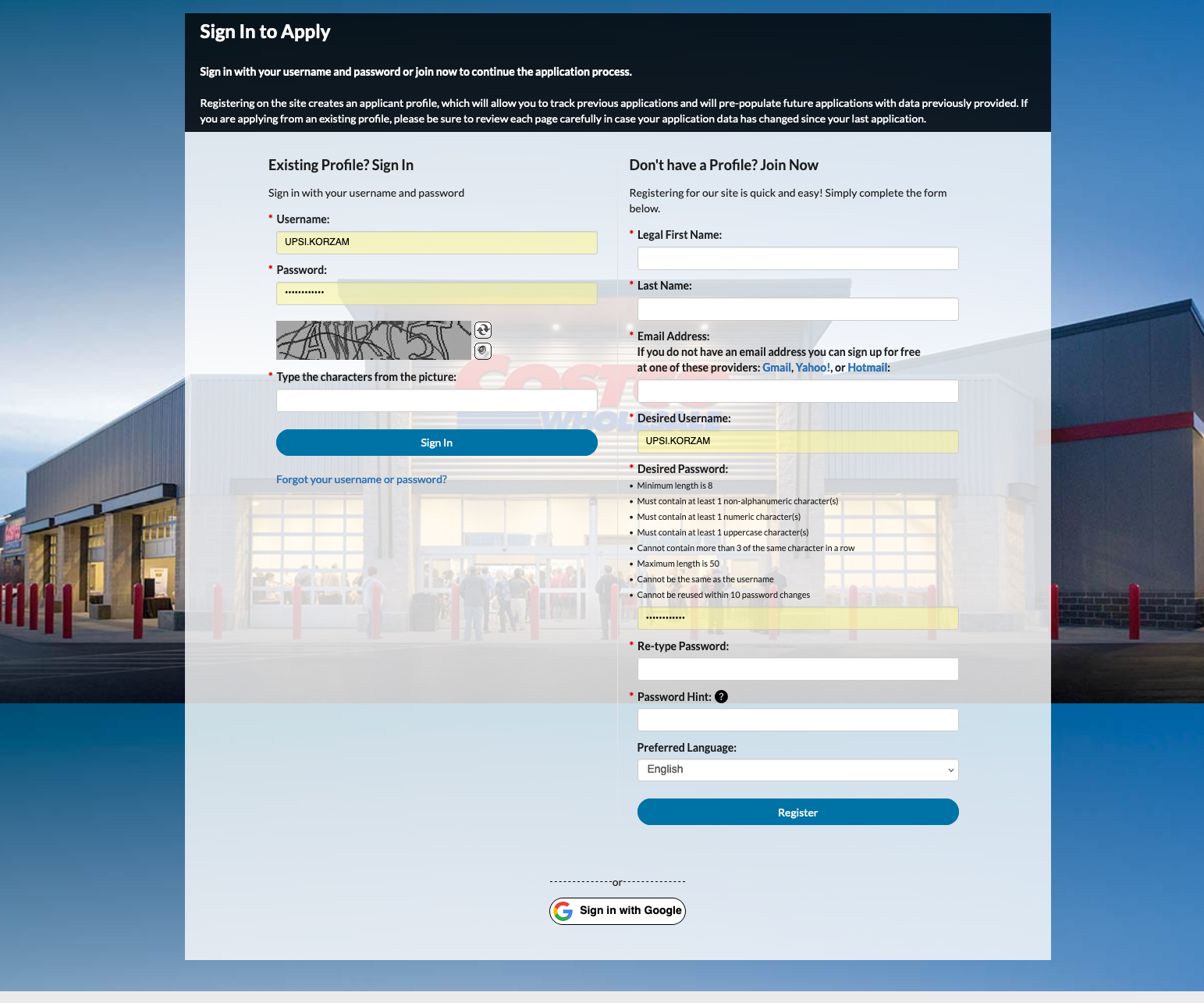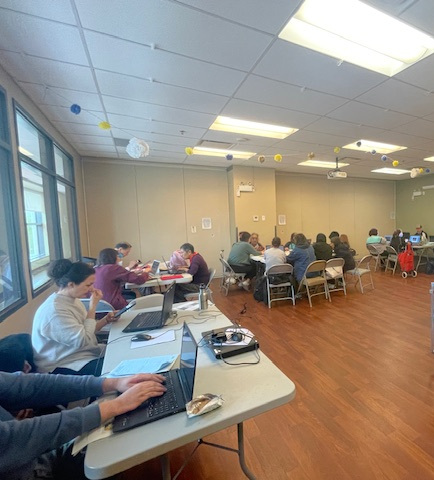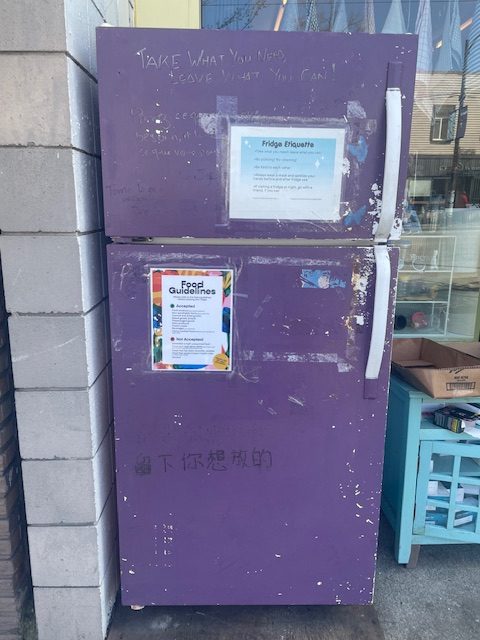
Consent as feeling-with
The objective of this project is to explore the dynamic relationship between automation and consent, offline and online. For instance, research ethics protocols in the university, and the online job application processes both rely on consent protocols located in Western logics of knowing, certainty and control. How do these hold up to the uncertainty and opacity of human-machinic relations? Who or what is enabled to consent, and to what extent? What alternatives exist to ‘click and continue’ consent?
Articles, Chapters, conferences
- Smythe, S., André, G., Sinclair, N. (2023). Consent as “feeling-with”: Everyday automation and ontologies of consent in a community technology centre. Digital
Culture & Education, 14(5), 64-82 https://www.digitalcultureandeducation.com/volume-14-5 - Smythe, S., Sinclair, N., André, G. (in Press). Automated Consent: Critiques, Creolizations and Speculations in Educational Media and Technology: New Developments in Remote Teaching, Machine Learning, Artificial Intelligence and Other Topics. pre-print
- Smythe, S., Sinclair, N., André, G., Rodney, S., Samala, R. (2023). How is automation structuring informed consent on and offline? ICQI, Urbana, 2023. Presentation

E-Recruitment: Applying for jobs online
The work of the community technology centres often involves helping people to find appropriate jobs online, to create their resumes, craft cover letters and fill in endless screening forms. This is a significant departure from the traditional approach many community members are accustomed to when they would typically visit employers in person, or send them a resume directly via email. Now, the process is subject to algorithmic decision-making, calling for new literacies and subjectivities.
Articles, Chapters, Conferences
- André, G., Ghezili, S., Samala, R., Sinclair, N., Smythe, S. (2023). Surfacing automation: inventive pedagogies in a community technology centre. Global Media Education Summit, Vancouver. Presentation
Form-Filling
Filling out forms to request services has become an integral part of our daily lives. Tasks that could once be completed over the phone or via email now require a form to facilitate the work of service providers. While the complexities of forms vary, we’re referring to digitized forms, requiring access to tech, adequate tech skills as well as a certain level of reasoning and critical thinking. So, what happens to people that lack in any of the above? They’re forced to depend on a friend or a family member or a community agency or they cannot access the essential services or benefits they require.

Food security
Our team has noticed people looking for food online, using public computers they don’t have at home. The information was hard to find and when they did find a food bank near their house or work they were asked to subscribe, sharing their information. It made some people feel uncomfortable and led us to explore how technologies are constructing and participating in the problem of food (in) security.
- How do technologies play a role in defining and addressing problems of food insecurity?
- Are food apps, food security websites and internet search logics mediating access to food?
- How do these technologies positioning different actors in the food (in)security ecosystem (corporate grocers and donors, large non-profit and philanthropic groups, front line workers, local food hubs, volunteers, social service agencies, food itself, and, finally the people who rely on food)?
- What is it like to look for food online?
Finally, we wanted to generate insights into pedagogical approaches that could support the work of community members, tutors, and educators who grapple with the techno-politics of distress when helping people to use technologies to alleviate food insecurity and other harms.
Follow the last updates of this project on the Blog

Rethinking Literacies, data, fairness in community technology centres
Rethinking literacies, data, and fairness in community technology centres requires a speculative approach that recognizes the complex interplay of social, material, cultural, political, and digital dimensions. Fairness involves not only providing adequate technological infrastructure but also fostering an inclusive environment where diverse voices and experiences are valued. As technology becomes increasingly embedded in everyday life, it is crucial to consider how literacies evolve within these contexts, especially in underserved communities. Community technology centres serve as vital hubs where individuals can develop the critical literacies necessary for navigating algorithmic cultures.
Articles, Chapters, conferences
- André, G., Smythe, S., Samala, R., Sinclair, N., Rodney, S. (2024). The sociopolitics of everyday automation: rethinking literacies, data and fairness in community technology centres. 52nd Annual Conference for the Canadian Society for the Study of Education (CSSE), Montreal, QC, Canada
- André, G. (2024). Youth, Technologies and Becomings. Rethinking Digital Literacies Through Relational Ontologies. [ Doctoral Thesis, Simon Fraser University] Burnaby. https://summit.sfu.ca/item/38120
